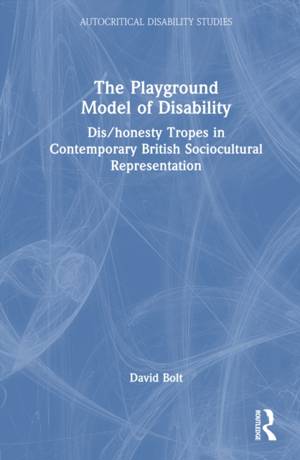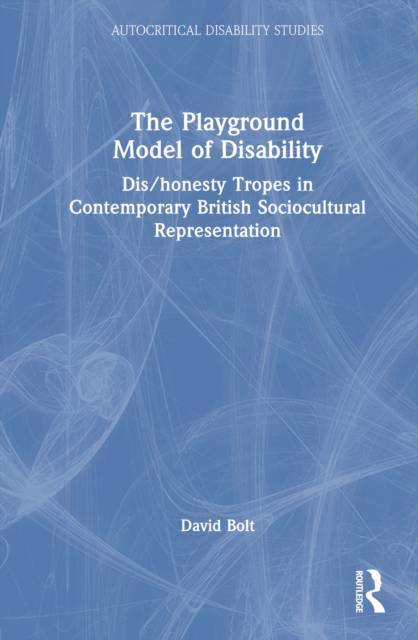
- Retrait en 2 heures
- Assortiment impressionnant
- Paiement sécurisé
- Toujours un magasin près de chez vous
- Retrait gratuit dans votre magasin Club
- 7.000.0000 titres dans notre catalogue
- Payer en toute sécurité
- Toujours un magasin près de chez vous
The Playground Model of Disability
Dis/honesty Tropes in Contemporary British Sociocultural Representation
David Bolt
305,45 €
+ 610 points
Format
Description
This book coins the term dis/honesty to define the moments in which dishonesty is invoked by disability, and vice versa. The concept is explored via contemporary British sociocultural representations - namely, jokes, disability sitcom, soap opera, radio interviews, fictionalised observations, and the robotic positionality of AI.
Spécifications
Parties prenantes
- Auteur(s) :
- Editeur:
Contenu
- Nombre de pages :
- 110
- Langue:
- Anglais
- Collection :
Caractéristiques
- EAN:
- 9781041065012
- Date de parution :
- 14-10-25
- Format:
- Livre relié
- Format numérique:
- Genaaid
- Dimensions :
- 156 mm x 234 mm
- Poids :
- 371 g

Seulement chez Librairie Club
+ 610 points sur votre carte client de Librairie Club
Les avis
Nous publions uniquement les avis qui respectent les conditions requises. Consultez nos conditions pour les avis.







